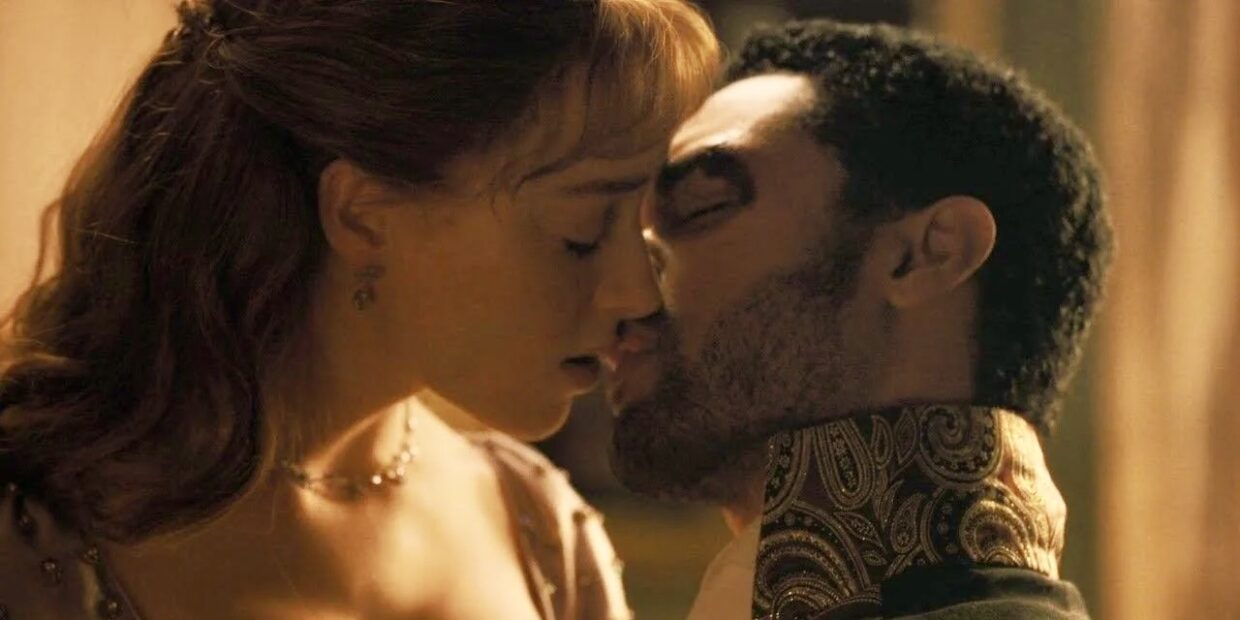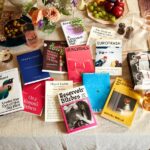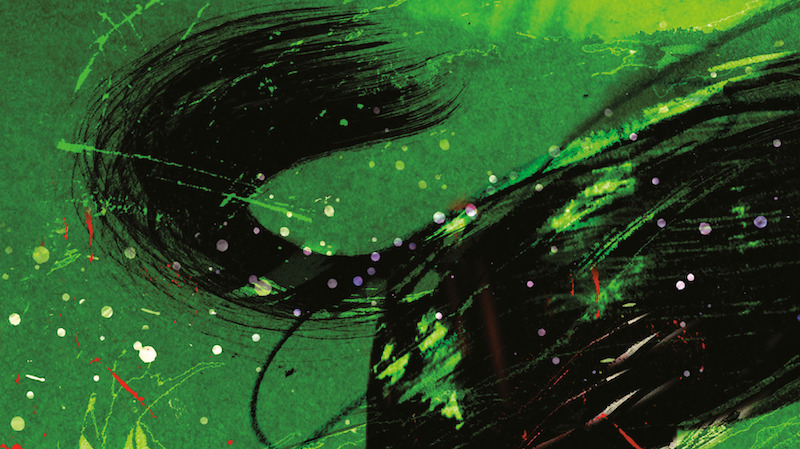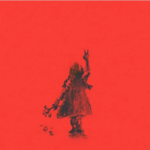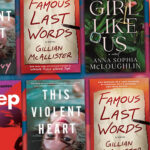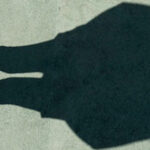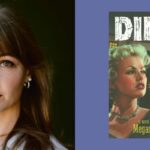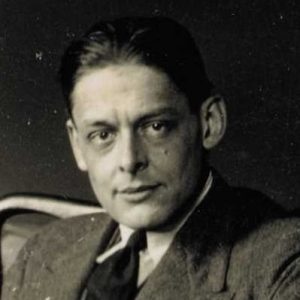Unguilty Pleasures: My Year of Reading Romance Novels
Katie Fustich on Finding New Possibilities in a Misunderstood Genre
What began with an innocent flirtation quickly devolved into a full-blown affair. How was I to know that a $7.99 purchase at LaGuardia Airport would leave my palms damp and my heart changed? It had been years since my last flight. Anxious, I abandoned the chaos of my gate for the sanctum of Hudson News. Between the biographies of dead presidents and the jumbo book of crosswords, I spotted it—the book for me. No, I thought. I can’t.
I paced the shop, feigning interest in snow globes of Times Square and travel-sized doses of Pepto-Bismol, all the while stealing furtive glances in the direction of the trade paperbacks. When I heard my boarding call over the intercom, I knew it was now or never: I grabbed the book, practically threw my money at the sales clerk, and rushed to my gate with a fresh copy of the inspiration for the Netflix series Bridgerton, Julia Quinn’s The Duke and I.
By the time my flight landed, Quinn’s book had prompted a major literary revelation. While the tale of Daphne Bridgerton didn’t exactly alter my perception of space and time (there were, frankly, far fewer descriptions of pretty dresses than I had hoped), I realized I had never read a romance novel. How many times had I walked past an entire section of the bookstore or library, subconsciously passing it off as unserious and therefore not worthy of my time? My formative years as a reader and writer were spent ingesting, without question, what dead male academics had deemed important to the literary canon.
Fortunately, I eventually came to terms with the fact that I don’t actually need to think Robinson Crusoe is good in order to be considered skilled in the written word. I came to realize that “guilty pleasures” could be just “pleasures” and allowed myself to become as well-versed in science fiction, mysteries, graphic novels, and celebrity memoirs as I was in the cast of The Canterbury Tales. Yet, whereas I had managed to intellectualize reading books like Nicole Richie’s The Truth About Diamonds: A Novel, romance felt beyond this ability.
Romance novels are the only type of literature that is considered actively anti-intellectual—the only kind of book one could read and somehow others would have a basis to consider you less intelligent for doing so. The Duke and I did the work of making me realize that this perception could not be less relevant when you are busy having too much damn fun. Romance, I realized, was the final frontier of my journey from unthinking academic acolyte to omnivorous literary independence. Seal broken, I set out on an earnest exploration of the genre.
Fast forward a year: I have just finished Erin Sterling’s The Kiss Curse—sequel to 2021’s The Ex Hex. Before that, I polished off Emily Henry’s The Book Lovers, and Danielle Jackson’s The Accidental Pin-up. By the time 2022 draws to a close, I will have read 15 romance novels in total. I’ve encountered everything from werewolves, to Bolshevik spies, to small town drama befitting the Hallmark Channel.
I have read men and women in every combination go from friends to lovers, from enemies to soulmates, from colleagues to couples. And while I have most definitely cringed at a romance author’s completely incorrect use of the term “on fleek,” I have also had the joy of reading as queer, disabled, fat, Black and brown people fall in love and transform dreams into reality. The sole commonality among these stories, better known as the Golden Rule of the Romance Novel, was a happy ending.
Romance, I realized, was the final frontier of my journey from unthinking academic acolyte to omnivorous literary independence.The early stages of this journey was marked by equal parts delight in the freshness of the stories, and shame at the years spent misaligning the genre. I realized just how keenly aware romance fans are of the genre’s reputation. While many romance readers are ardent advocates for the genre’s value, most if not all are in touch with the mainstream perception of romance as “trashy.” In one survey, the majority of romance readers admitted they had, at one time or another, hidden their reading material.Genre fiction such as sci-fi and fantasy, while still maintaining a healthy underground, has all but cracked the shell of mainstream literature.
You would be hard-pressed to find anyone squirreling away their copy of A Game of Thrones for fear that their good taste will be called into question. Meanwhile, every other GoodReads review of a Colleen Hoover book begins with the inevitable, “I don’t really read romance novels, BUT—” as though they must convince themselves and others that this is but a dip of the toe, and that they will promptly resume reading more serious things as soon as they finish their 3-star analysis of why two people falling in love is painfully unrealistic..
As with many things in this world, misogyny provides a tidy explanation. Surveys indicate that the clear majority of romance novel writers and readers are women. Many have observed the clear connection between the by women, for women nature of the genre, and its perpetual role as the butt of a joke. Some detractors take this loathing even further: Conservatives, often of the religious variety, claim that romance novels have addictive properties, making women lose focus on values like simply accepting your husband is bad at sex. Even doctors have decried the impact of the romance novel on their work, expressing a desire for their patients to keep the fiction out of the consulting room.
In the publishing world, romance novels have been perpetually subjugated by their more literary cousins. Yet, despite the romance community playing nicely in their corner of the sandbox, they are regularly called upon to defend their honor by writers and editors who would see their passion as meaningless. Early feminist Mary Wollstonecraft urged women not to read “such flimsy works” by “stupid novelists,” and advanced the notion that women would only be equal in the eyes of society if they pursued more serious works.
George Eliot felt even more strongly, and penned “Silly Novels by Lady Novelists,” a lengthy essay that makes liberal use of the word “drivel.” These views have persisted into the modern era. Shortly after hearing she had won the Pulitzer Prize, Jennifer Egan gave an interview in which she referred to the chick-lit genre as “derivative, banal stuff.” Curtis Sittenfeld proclaimed that she had stopped reading romance novels because “most […] are badly written.” Ironically, Sittenfeld was being interviewed in order to promote her novel Eligible, a modern-day retelling of Pride and Prejudice.
Here I am, completely reinvigorated in my love for reading and writing thanks to several thousand pages filled with crystalline character studies, incisive dialogue, thought-provoking social commentary, and yes—lots of very good sex.How, then, would writers like Sittenfeld classify the works of Jane Austen? Would Egan have told the Brontë sisters to aim higher, and to focus on matters unrelated to human emotion? Who is granted the authority to determine what is “literary” and what is mere fluff? The arbitrariness of this distinction hit me in force when I read Sally Rooney’s Conversations With Friends in the midst of an otherwise mass-market paperback-filled summer. I adored Rooney’s earnest characters and sultry descriptions of intimacy.
As I closed the book for the final time, I breathed deeply, as if trying to seal in the experience of reading it. Yet, as moved as I was,I was also absolutely bewildered: there was nothing about Conversations With Friends that distinguished it from the pile of romance novels accumulating on my nightstand. I say this not to diminish or disparage Rooney—a writer I love and admire—but to question the ways in which literary gatekeepers determine who is and isn’t worthy of our intellectual curiosity.
After a year spent reading romance novels, I can’t help but feel as though I’ve stumbled my way into a great bookish secret—one I’ve been hesitant to share out of fear that no one will believe me. Still, here I am, completely reinvigorated in my love for reading and writing thanks to several thousand pages filled with crystalline character studies, incisive dialogue, thought-provoking social commentary, and yes—lots of very good sex.
When so much critically-acclaimed literature emphasizes the most profound drudgeries of human existence, reading romance has liberated me from the misguided notion that suffering and meaning are interchangeable. I don’t see romance as an escape, a way to smooth the anxious folds of my brain, but a vehicle that has allowed me to reconnect with a part of myself I felt close to burning out.
For the first time since I was a teenager spending late nights drafting Will & Grace fanfiction, my writing sessions are not clouded over with the premeditated anxiety that I will never be Virginia Woolf. I feel in control of my literary identity, freed from the I should be’s that dictated reading and writing. As it turns out, in the world of romance, literary success can look wildly different than industry stalwarts would have you believe: Romance writers have found much greater success with tools like self-publishing, or the viral marketing of #BookTok. Where some see flukes, I can’t help but see a genre with the capacity to reinvigorate a stagnant publishing model.
Though I come to you preaching the gospel of romance as if it were some newly-discovered cure-all, I know I am not the only one who sees the richness the genre has to offer. I was thrilled when writer Akwaeke Emezi released You Made a Fool of Death With Your Beauty earlier this year, and remained firm in their stance that it was “not ‘literary’” but a romance novel through and through. They spoke about the ways in which romance novels can open up new possibilities for the way we give and receive love. I have spent the last year experiencing this revelation firsthand. Both the medium and the message of romance novels feel rife with new ideas yet to be explored—if only we’d look their way.

